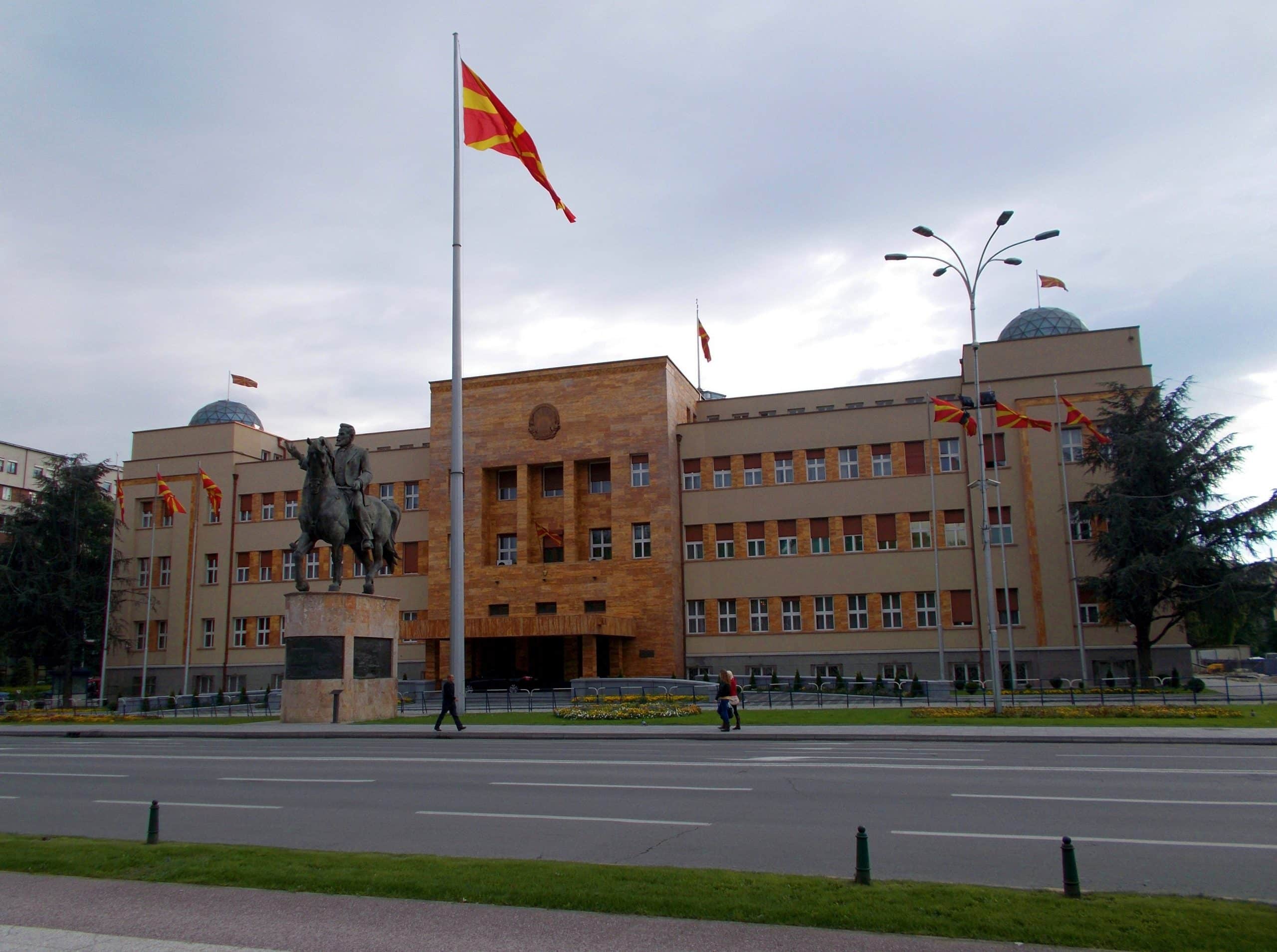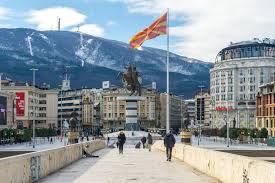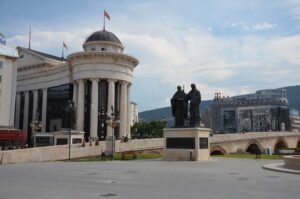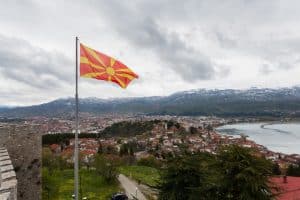Macedonia is a country with an ethnic Albanian population of over 25%, but the minority still lacks in many rights. The armed conflict of 2001 between Albanian insurgents and Macedonian forces ended in a peace deal with multiple legal provisions, which are supposed to change their situation, the last one of them being the controversial language law. The bill divides the country’s nationalists and supporters of the ethnic Albanians. Street protests, brawls in parliament and a president refusing to fulfil his constitutional duties have marked the ongoing discussion.
The law that strains parliamentary work In January 2018 the bill first entered parliament, with 69 of 120 MPs voting for it. The outcome shows that it is supported by a majority made up of the ruling coalition between the Social Democratic Union Macedonia (SDSM), the Democratic Union for Integration (DUI), Democratic Party of Albanians (DPA) and other MPs from minority ethnic groups. President Gjorge Ivanov (conservative VMRO-DPMNE) vetoed the law shortly after because he thinks that the law is “unjust” and “repressive”. He added that it “favours only one language (and that this) kind of law will deepen inter-ethnic tensions and represents a threat for the inter-ethnic life”.
In March the parliament voted for the law again, this time 64 MPs supporting it, and through this also making it by constitution impossible for the president to veto it for a second time. Nevertheless, he did so and currently refuses to sign the law, promising that he will not approve it, no matter what happens. He and other critics say that the procedure of the bill´s adaptation has not been implemented properly. In fact, the parliamentary session surrounding the debate have been troubled by several incidents. During the debate, opposition MPs submitted 34000 amendments to block the bill, but were ignored. Shortly before the second voting, former prime minister and former leader of the opposition VMRO-DPMNE party, Nikola Gruevski, went behind ethnic Albanian speaker Talat Xhaferi’s desk, tried to turn off his microphone and spilled water on his desk. A small brawl between the two followed, surrounded by VMRO-DPMNE members encircling Xhaferi. Furthermore, there were protests, organised by the World Macedonian Congress, an organisation which aims to represent ethnic Macedonian wishes in Macedonia and abroad. They are considered to be nationalists and ideologically connected to VMRO-DPMNE. The protesters demanded that the president keeps his promise not to sign the law. During the night after the voting, the car of SDSM MP Slavica Shumanska-Miteva was set on fire. The parliamentary opposition continues to argue that the law goes against the constitution and threatens national unity.
The language law will enlarge a previous agreement which regulates the use of Albanian as an official language in areas where the Albanian population exceeds 20%. With the new bill, the usage will be extended over the entire country in institutions like municipalities, hospitals and courts. The ruling coalition argues that it will make life easier for ethnic Albanians. Foreign politicians have praised the parliament’s decision. Ilir Meta, president of Albania, called it an “important historical and important act, not only for Albanians but also for the European future of Macedonia”. President of Kosovo Hashim Thaci, a country which also struggles under ethnic divisions, stated that it shows “good will for coexistence, respecting cultural diversity and dignity and integrity of every citizen”.
New collaborations in parliament The voting for the law also shows the work put in by the ruling parties in collaboration with ethnic Albanian parties. After the latest parliamentary elections, the usually ruling VMRO-DPMNE, which won 51 seats, failed to form a government. After that, current prime minister and leader of SDSM Zoran Zaev searched for coalition partners to add up the party´s 49 seats. To unite the split between the three biggest Macedonian Albanian parties DPA, DUI and BESA, PM of Albania Edi Rama asked them to work on a joint agreement for parliamentary discussions. Surprisingly, they met and signed a deal consisting of seven conditions, which mainly focus on the situation of ethnic Albanians in Macedonia. When DPA and DUI entered a coalition with SDSM, the language law was a key demand for the cooperation. Zaev´s government now has a narrow majority of 61 of 120 seats, but with Albanian parties as support for e.g. the language law, it can compromise nearly 70 seats.
What will the opposition do next? VMRO-DPMNE leader Hristijan Mickoski announced that the party with support of president Ivanov will not accept the implementation of the law. It plans on organising major protests in May to achieve early general elections. By this, it hopes to overthrow the government and its Macedonian-Albanian partners. Mickoski said that the “protests will last until we overthrow this anti-national government in early parliamentary elections. We call on all citizens to join us”.
The next closest possibility for the opposition to stop the law would be to go to the constitutional court. How far the nationalists are actually willing to go to prevent the language law, will be seen in the coming months.
Sources:
BalkanInsight I. BalkanInsight II. BalkanInsight III. BalkanInsight IV. US News RFE/RL IntelliNews Reuters FES



